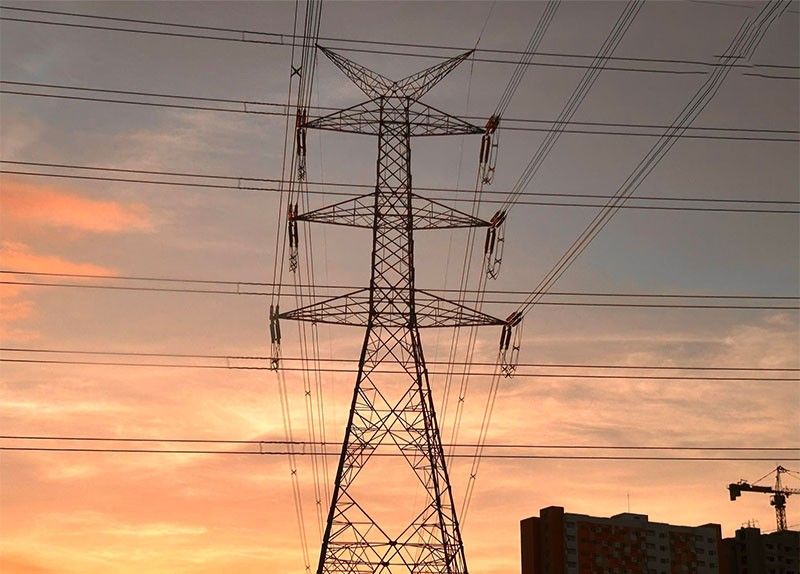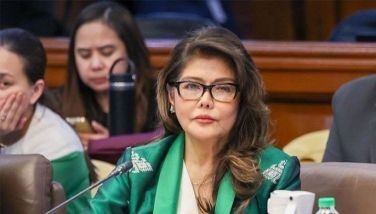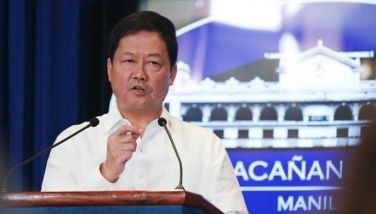Chinese presence at NGCP


The Chinese presence at NGCP can be blamed on former president Gloria Macapagal-Arroyo who allowed it to happen. She was very close to China, trying a pivot to China away from the United States through Chinese supported infrastructure projects.
Remember the ZTE broadband scandal? And then the NorthRail project, which eventually required DOF to pay the China Ex-Im Bank P5 billion just so we can clear the deck and let the Japanese take over the project.
Since the State Grid of China is a state-owned enterprise, it shouldn’t even be in a vital infrastructure project we are privatizing. Under RA 11659, companies controlled by or acting on behalf of a foreign government or foreign state-owned enterprises are prohibited from owning capital in any public service classified as a public utility or critical infrastructure.
While the implementing rules of RA 11659 allows existing investments of foreign SOEs to maintain them but not to increase, Congress is duty bound to review NGCP’s franchise and cancel it if necessary to ensure that it complies with the spirit of RA 11659. If the situation was reversed, the Chinese government wouldn’t have second thoughts offloading our investment in a Chinese infrastructure company.
How confident and safe should we feel knowing that the top man at NGCP, the chairman of the Board, is Zhu Guangchao, the senior representative of the State Grid of China to the NGCP Board? Worse, the supposedly Filipino majority in NGCP practically gave the Chinese veto powers.
A shareholder agreement of NGCP prevents the majority Filipino shareholders from convening and making emergency decisions unless minority members are present. Senator Win Gatchalian said this could be a violation of the Constitution, as it effectively negates the intent of a constitutional provision limiting foreign stake in public utilities to safeguard Filipino interests.
In the case of NGCP, Gatchalian noted that a board meeting cannot happen if the minority shareholders boycott it. This can happen for two consecutive times, after which the majority shareholders can proceed with the board meeting despite the absence of the minority. It, however, delays urgent decisions that must be taken that the Chinese do not like.
“This provision effectively ties the hands of the Filipino shareholders. Filipinos should always be in control, management-wise, finance-wise, and in terms of operations… This ownership structure allows Filipinos, and not foreigners, to make decisions on the direction, management, and operations of a crucial business imbued with public use and public service. How can Filipinos make a decision if they cannot convene?” Gatchalian asked in a past Senate hearing.
“This is a very important safeguard for the Filipinos, but we sold ourselves to the devil by foregoing this safeguard. We need to further study this legal issue but, on its face, it seems that the shareholder agreement is a way around the constitutional requirement,” he said.
“The agreement effectively means that the supposedly Filipino majority shareholders will not be able to make a decision on their own, especially in cases of emergency or those relating to national security,” Gatchalian said.
A lawyer of NGCP, however, explained that this policy under the shareholder agreement is only meant to protect the interests of the minority shareholders, which in this case are the representatives from State Grid of China. There are four Chinese members of the NGCP board. Henry Sy, Jr and Robert Coyuito are both vice chairman. Other directors are Jose Pardo, a former DOF Secretary of Erap, Anthony Almeda who is also NGCP CEO and represents BigBoy Sy, and Francis Chua, a Chinoy business leader, but it is uncertain who he represents except that he is also a board member of the Bank of Commerce. The other director is Paul Sagayo, a lawyer and professor at San Beda Law School.
The Chinese component of their Board had not hindered their decision making and “they recognize that they cannot actually strong arm the Filipino shareholders,” an NGCP official said.
That didn’t impress Sen. Raffy Tulfo, chairman of the Senate energy committee. Tulfo pointed out that this should not be a policy, especially for a critical public utility company with national security implications.
“This is a public utility… Ibig sabihin ang mga taga-State Grid of China are calling the shots” Tulfo said as he accused NGCP of “protecting” the Chinese company more than its consumers.
As for the mess that led to the Panay power blackouts, the good news is NGCP has made new promises of when they will complete critical projects that will assure power transmission stability for Iloilo and the rest of the island.
From what I heard from informed sources, the Mindanao Visayas Interconnection, the project delayed by a TIEZA TRO, will be inaugurated as scheduled on January 25 or three weeks from now. Malacanang apparently intervened and instructed TIEZA and NGCP to file a joint motion to suspend the TRO, signed by the Office of the Solicitor General for TIEZA. In the meantime, Malacanang authorized NGCP to enter the property and put up their towers.
The more critical connection involving upgrading the capacity of a submarine cable that will benefit Iloilo City is still problematic. Iloilo Grains was reported to have asked NGCP to pay 140 percent more than their purchase offer for easement only. NGCP is at a standstill on this project pending progress on the negotiation with Iloilo Grains. The TRO for both the TIEZA and Iloilo Grains ROW are pending in the division of SC Associate Justice Marvic Leonen. The deadline for delivery of the submarine cable project is December 2024.
Maybe Iloilo officials, led by Mayor Jerry Treñas, should help negotiate with Iloilo Grains, even if only to allow NGCP to get the work started while they are talking about the amount of compensation. DOE and ERC should also help, specially as NGCP’s right to expropriate is being questioned. Actually, getting ROW is the government’s problem they delegated to NGCP, which is why DOE should help now when difficulties are encountered or the public will suffer from project delays.
The President should use his political clout to help settle ROW disputes. Otherwise, his ambition to build modern infrastructure is a pipedream.
Boo Chanco’s email address is bchanco@gmail.com. Follow him on X or Twitter @boochanco
- Latest
- Trending




























